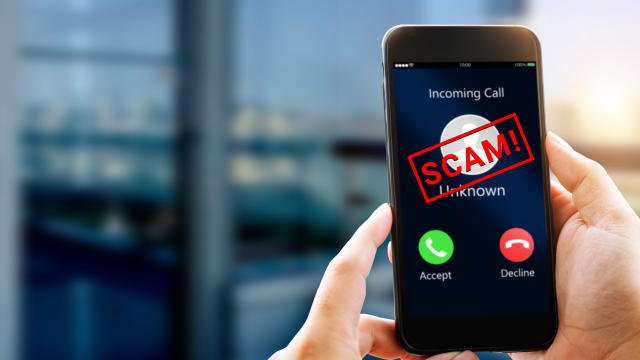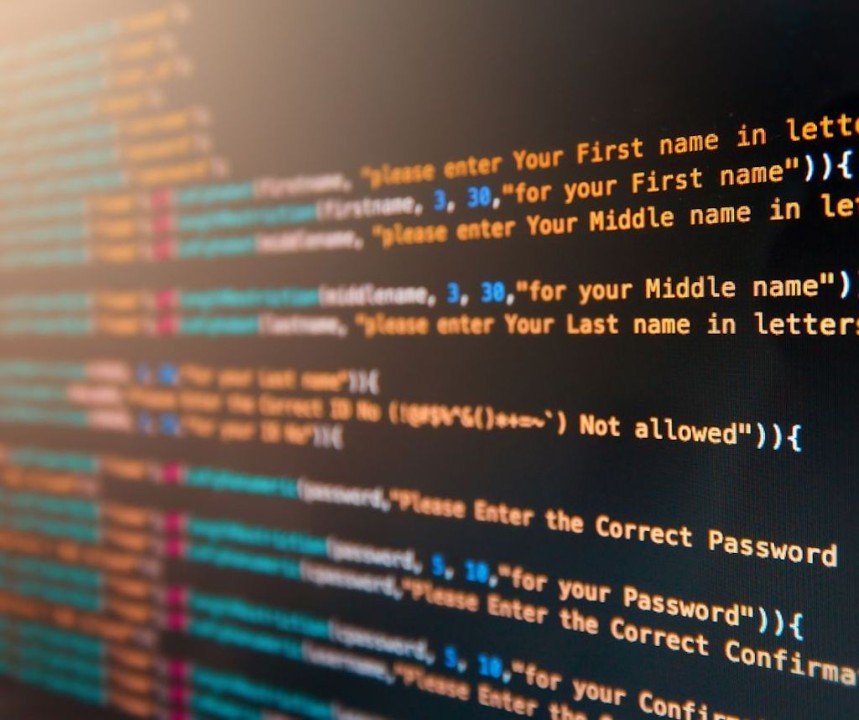Scam calls have become a frequent intrusion in our daily lives, with numbers like 02045996818 leading the charge in fraudulent activities. These calls prey on our fears and desires, using sophisticated techniques to deceive and defraud unsuspecting individuals. It’s crucial to understand how to identify and avoid these scams to protect your financial and emotional well-being.
In this blog post, we’ll explore the various types of scam calls associated with 02045996818, common tactics used by scammers, and practical steps to safeguard yourself from these deceptive schemes. By the end of this guide, you’ll be equipped with the knowledge to recognize and avoid scam calls, ensuring your safety in an increasingly connected world.
Types of Scam Calls from 02045996818
Understanding different forms of scam calls can help you recognize red flags and avoid falling victim to these schemes.
Fake Government Calls
One of the most unnerving types of scam calls involves false representation of government agencies. Callers often impersonate officials from the IRS, Social Security Administration, or other authoritative departments, using threats of legal action or arrest to coerce their targets into giving them money or personal information. These calls play on fear and urgency, making it difficult for individuals to think clearly and rationally. If you receive a call from a number like 02045996818 claiming to be from a government agency, verify its authenticity before taking any action.
Tech Support Scams
Tech support fraud is a prevalent tactic where scammers pretend to be from a well-known tech company, informing the victim that their computer is infected with a virus or malware. They offer to fix the problem for a fee, but in reality, they are attempting to install malicious software or steal personal data. This type of scam preys on individuals’ lack of technical knowledge, making it easier for scammers to gain access to sensitive information.
Lottery or Prize Scams
The allure of a sudden windfall can cloud judgment, and scammers exploit this weakness by informing victims that they’ve won a prize but need to pay a fee to claim it. The prize, of course, doesn’t exist, and once the fraudsters have your money, they disappear. These scams often target individuals who are financially vulnerable, making the promise of a quick financial gain even more enticing. If you receive any suspicious calls, such as from the number 02045996818, be cautious and verify the legitimacy before taking any action.
Investment Scams
These calls appeal to the target’s desire for financial gain, offering once-in-a-lifetime investment opportunities with high returns and low risks. In reality, the investments are non-existent, and the scammers are simply looking to fleece victims of their hard-earned cash. These scams can be particularly devastating, as they often involve significant sums of money and can leave victims financially ruined.
Common 02045996818 Scam Call Tactics
Understanding the tactics used by scam callers can help you be more vigilant. By knowing what to look out for, you can better protect yourself from potential fraud.
Caller ID Spoofing
Caller ID technology makes it appear as if the call is coming from a legitimate number, sometimes even mimicking the number of a trusted organization, such as 02045996818. This tactic can be disarming, as it can lead the target to believe the call is genuine, relying solely on the displayed number. Scammers use this technique to bypass initial skepticism and gain the victim’s trust.
Pressure and Urgency
Scammers often use high-pressure tactics to rush victims into making a decision without thinking it through. They create a sense of urgency, claiming that immediate action is necessary to avoid dire consequences. This pressure can cause individuals to act impulsively, making it easier for scammers to extract money or personal information. If you’re ever asked to call a number like 02045996818 under such conditions, be cautious as it could be a scam.
Impersonation of Trusted Organizations
By pretending to be from a known and trusted organization, such as a bank or a tech company, scammers exploit the trust and respect these institutions command, making it more likely for victims to comply with their demands. This impersonation adds a layer of credibility to the scam, making it harder for individuals to discern the fraud.
Request for Personal Information or Money
Scammers aim to elicit sensitive information such as social security numbers, bank account details, or credit card numbers. Alternatively, they may request a payment, either for a non-existent service or to ‘resolve’ a fabricated issue. These requests are often framed in a way that makes them seem urgent and necessary, compelling victims to comply. Always be wary of any unsolicited request for information, especially if it involves numbers like 02045996818.
How to Identify and Avoid Scam Calls
Wondering how to identify and avoid scam calls? Recognizing a scam call is the first step in prevention. Follow these practices to determine the legitimacy of a call.
Trust Your Instincts
If something feels off about the call, it probably is. Trust your gut and don’t hesitate to hang up. Scammers create doubt and confusion, so trusting your instincts is crucial in protecting yourself from scam calls.
Verify the Caller’s Identity
Received a call from a company or organization? Ask for the caller’s name and a call-back number. Use the organization’s official contact information to confirm the call. This extra step helps verify the legitimacy of the call and prevents falling victim to scams. For example, if you get a call from 02045996818, verify it through official channels.
Never Share Personal or Financial Information
Legitimate organizations will never ask for sensitive information over the phone. Be cautious of unsolicited calls requesting personal or financial details. If unsure, hang up and contact the organization directly using a verified number.
Protecting Yourself from Scam Calls
Shield yourself from the barrage of scam calls, including those from numbers like 02045996818, by taking these proactive measures.
Use Call-Blocking Apps
Install call-blocking apps to screen and block known scam numbers. Popular options include Truecaller, Hiya, and Nomorobo. These tools can significantly reduce the number of scam calls you receive.
Register Your Number on the Do Not Call List
Register your number on the Do Not Call List to cut down on marketing and scam calls, including those from numbers like 02045996818. Although it won’t eliminate all unwanted calls, it can help decrease them. Check your local regulations and register your number to benefit from this service.
Be Cautious with Your Personal Information Online
Limit the amount of personal information you share online to protect yourself from scam calls. The more details scammers have, the more convincing their pitches can be. Regularly monitor your online presence and use privacy settings on social media and other platforms to keep your contact information private.
What to Do if You Receive a Scam Call
Receiving a scam call can be alarming. Knowing how to respond is essential for your safety.
Hang Up Immediately
If you suspect a call is a scam, hang up right away. Do not engage or entertain the caller. Scammers often use prolonged conversations to steal personal information or money. For example, if you get a suspicious call from a number like 02045996818, it’s crucial to end the call immediately to avoid fraud.
Report the Scam Call
Many countries offer hotlines or websites for reporting scam calls. Reporting these calls can help protect others and assist authorities in tracking and shutting down scam operations. This contributes to a safer community for everyone.
Remember, staying vigilant and knowing how to handle scam calls can keep you and others safe.
Conclusion – Stay Vigilant Against Scam Calls
The battle against scam calls requires constant vigilance and a commitment to educating yourself and others. By staying informed and alert, you can protect yourself and your loved ones from the financial and emotional toll of phone scams like those from numbers such as 02045996818. Knowledge is power, and sharing information can help create a community less vulnerable to the deceptive tactics of scammers.
One key example to watch out for is the number 02045996818, reported in various phone scams. Your best defense is a proactive one: be alert, stay informed, and be scam-aware.
For more resources and insights on protecting yourself from telecom scams, visit our dedicated webpage and join our community of informed consumers. Stay safe from phone scams by staying informed!
—
Frequently Asked Questions about Caller ID Spoofing
What is Caller ID Spoofing?
Caller ID Spoofing is a scam tactic where fraudsters manipulate Caller ID technology to make it appear as if the call is coming from a legitimate or trusted organization’s number, such as 02045996818. The main goal is to trick the victim into thinking the call is genuine.
How can I verify the identity of a caller claiming to be from a known organization?
To verify the caller’s identity, ask for their name and a call-back number. Disconnect the call and look up the organization’s official contact number from a reliable source. Use this official number to call back and confirm if the original call was legitimate.
What should I do if I receive a scam call?
If you suspect a call is a scam, hang up immediately. Do not engage or respond to any requests. Report the scam call to the appropriate authorities – many countries have hotlines or websites dedicated to reporting such incidents.
How can I protect myself from scam calls?
There are several ways to protect yourself from scam calls. Use call-blocking apps that screen calls and block known scam numbers like 02045996818. Register your number on the Do Not Call List to reduce marketing and scam calls. Be cautious about sharing your personal information online.
What is the role of trust in scam calls?
Scammers often impersonate trusted organizations such as banks or tech companies to exploit the trust these institutions command. This impersonation increases the likelihood that victims will comply with their demands, making trust a crucial element in these scams.





